PROGENY
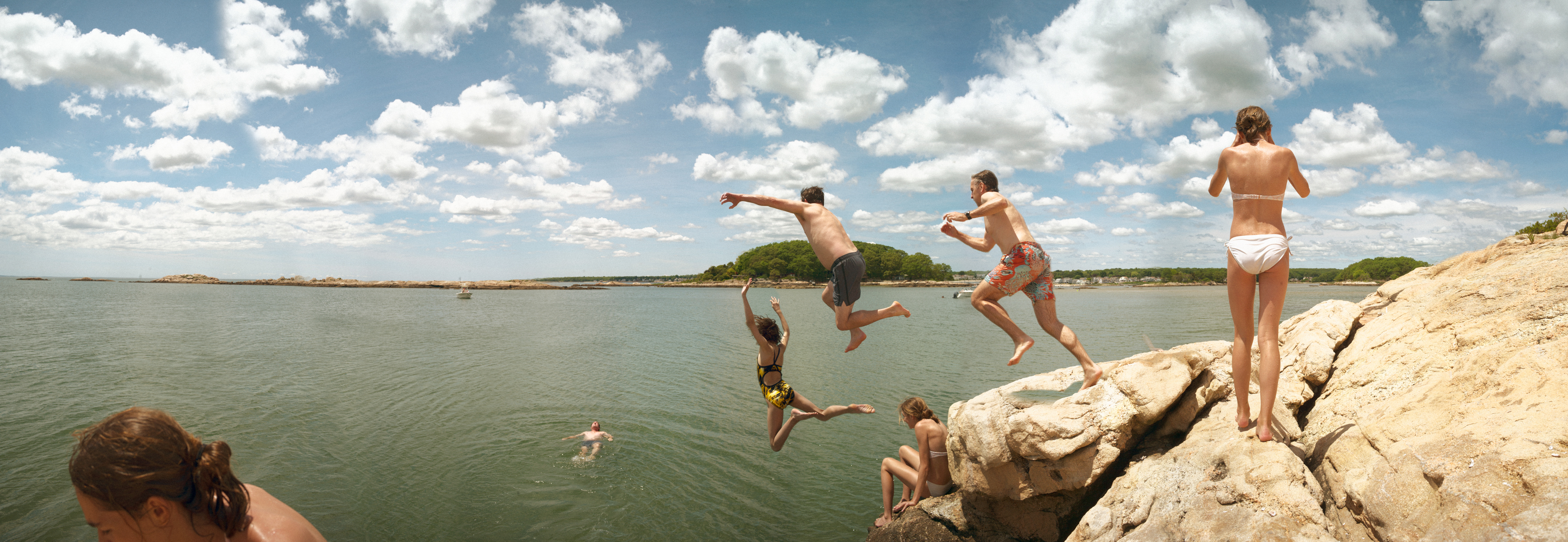
Thoss constructs panoramas by stringing together photographs taken over extended time, with subjects often appearing more than once in the same image. From unscripted laughter to spontaneous intimacy, Thoss captures and arranges these moments into expansive images that defy periphery. The resulting works thrive on motion and instability, panoramas that not only extend and rework memories of family life, but celebrate them.



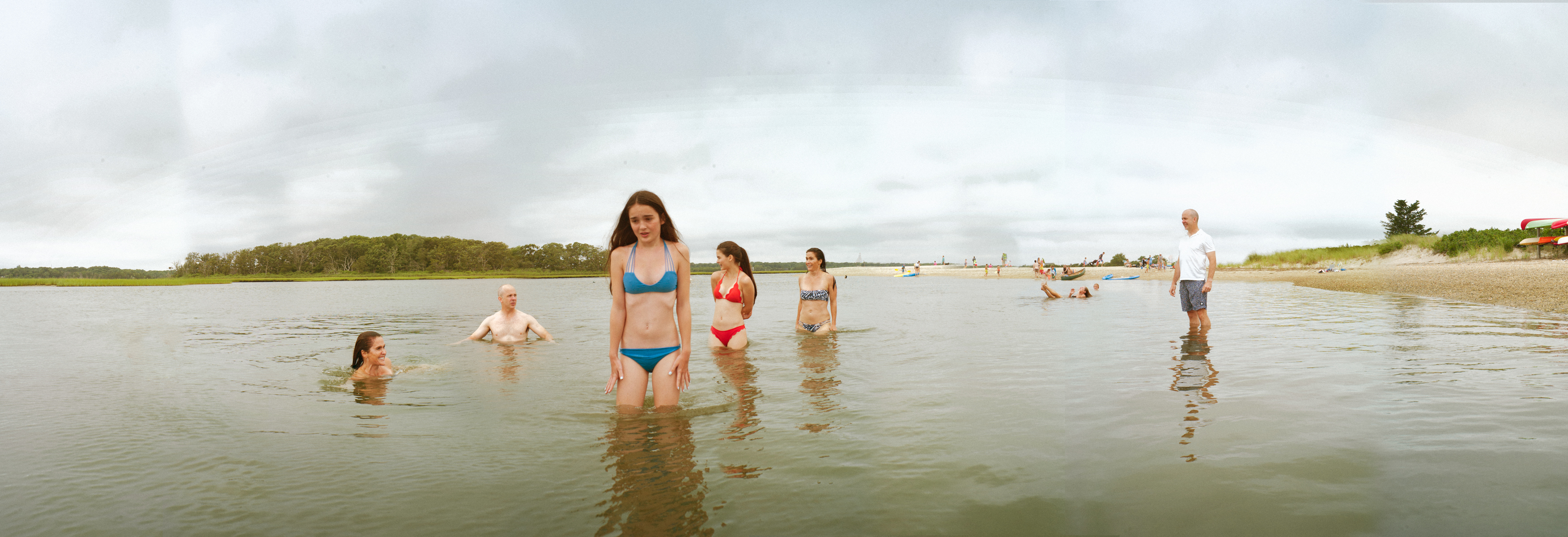























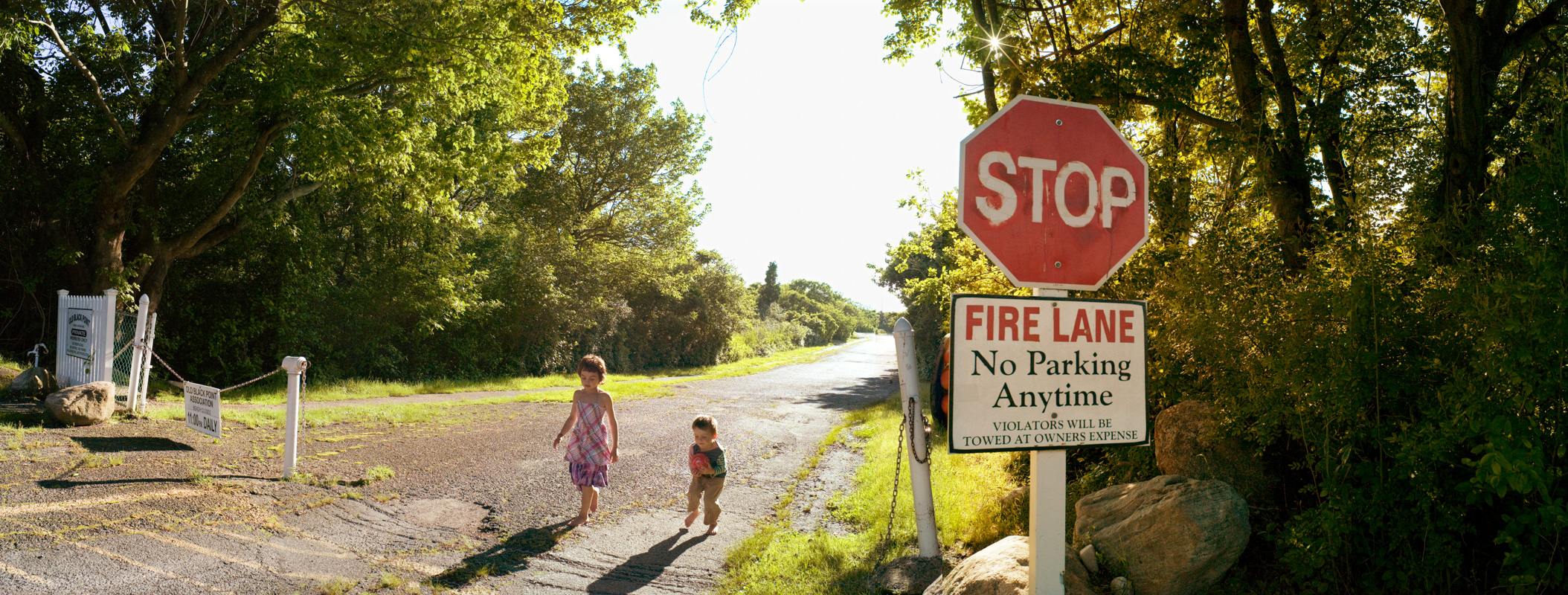














Details
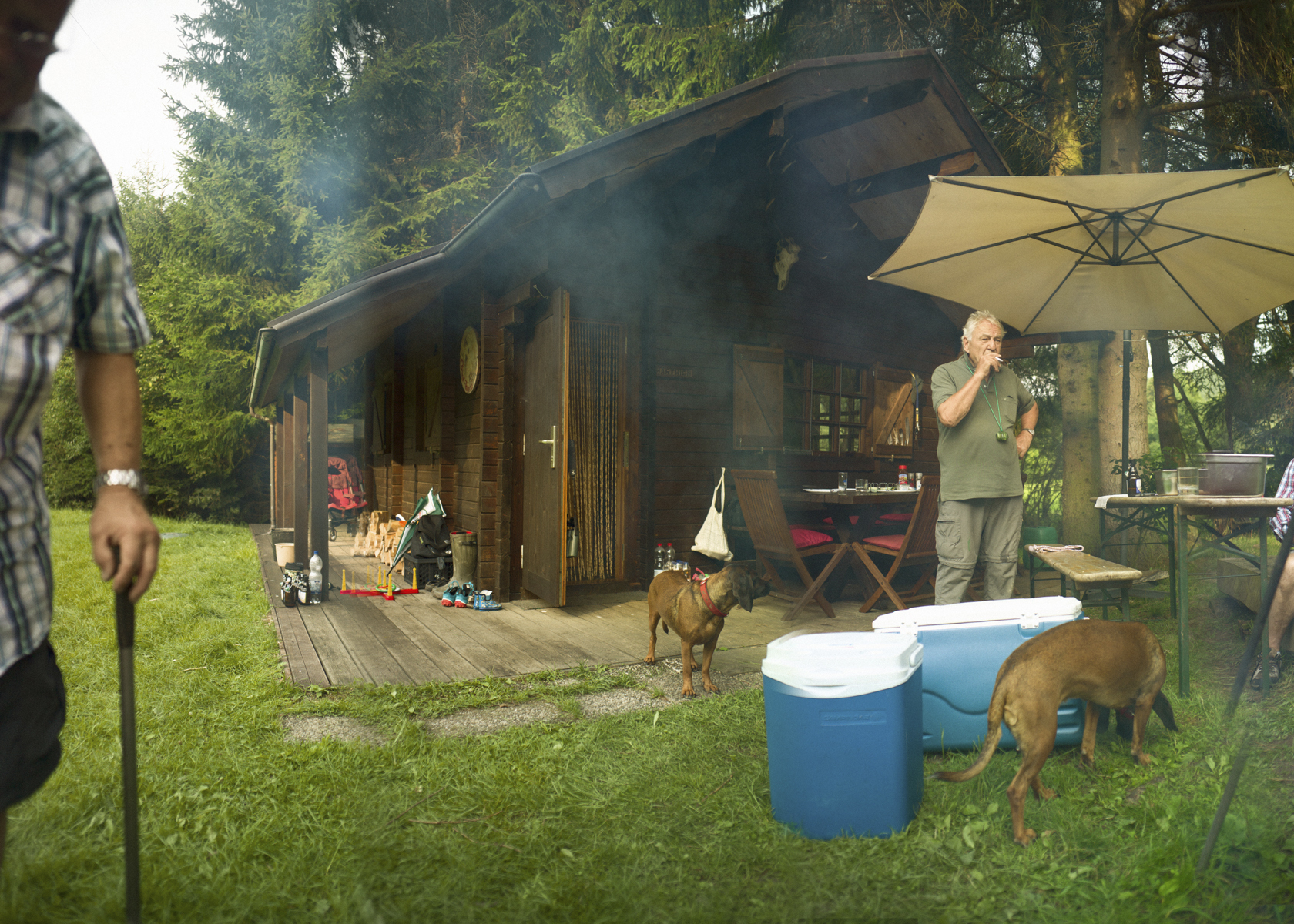




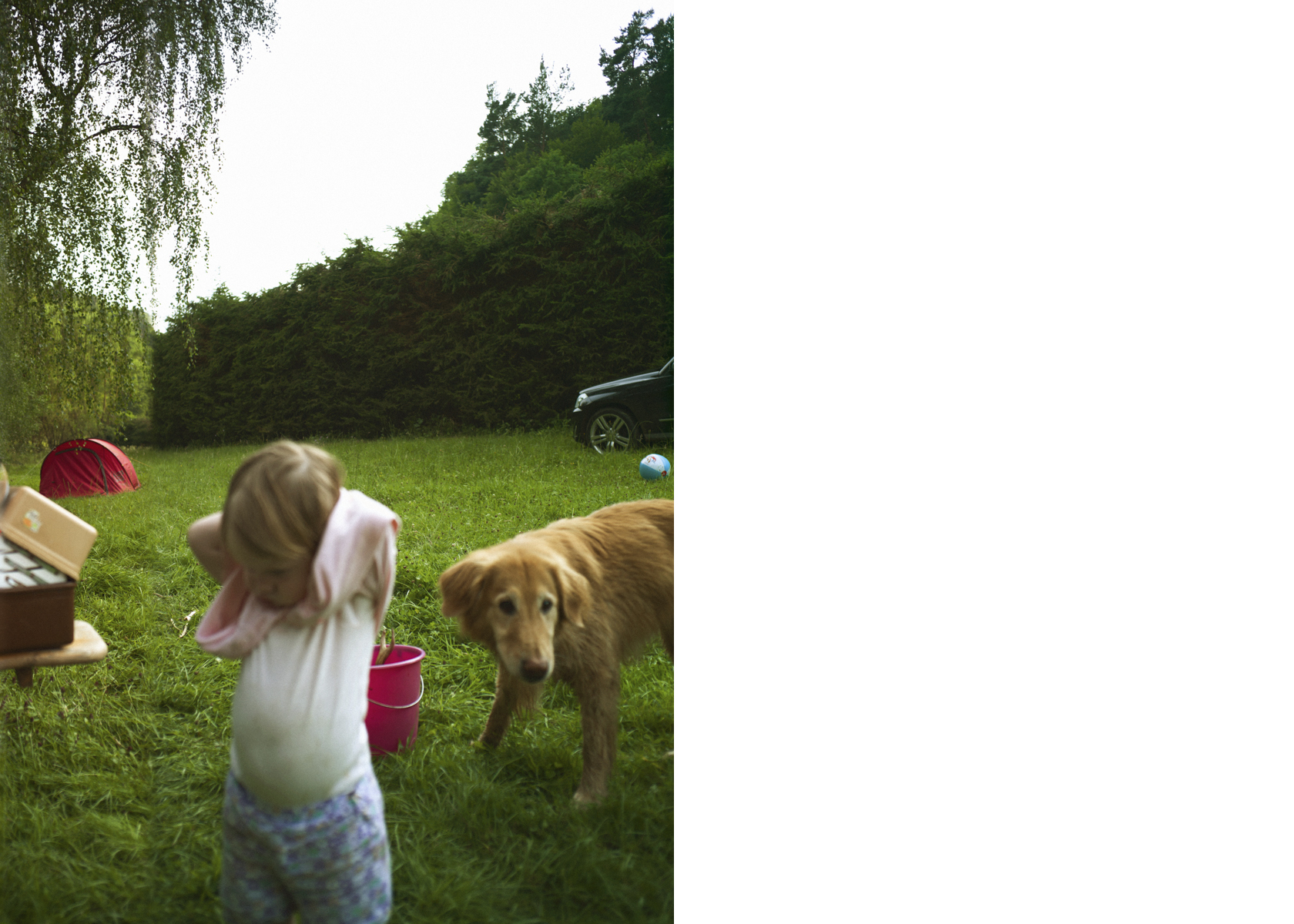



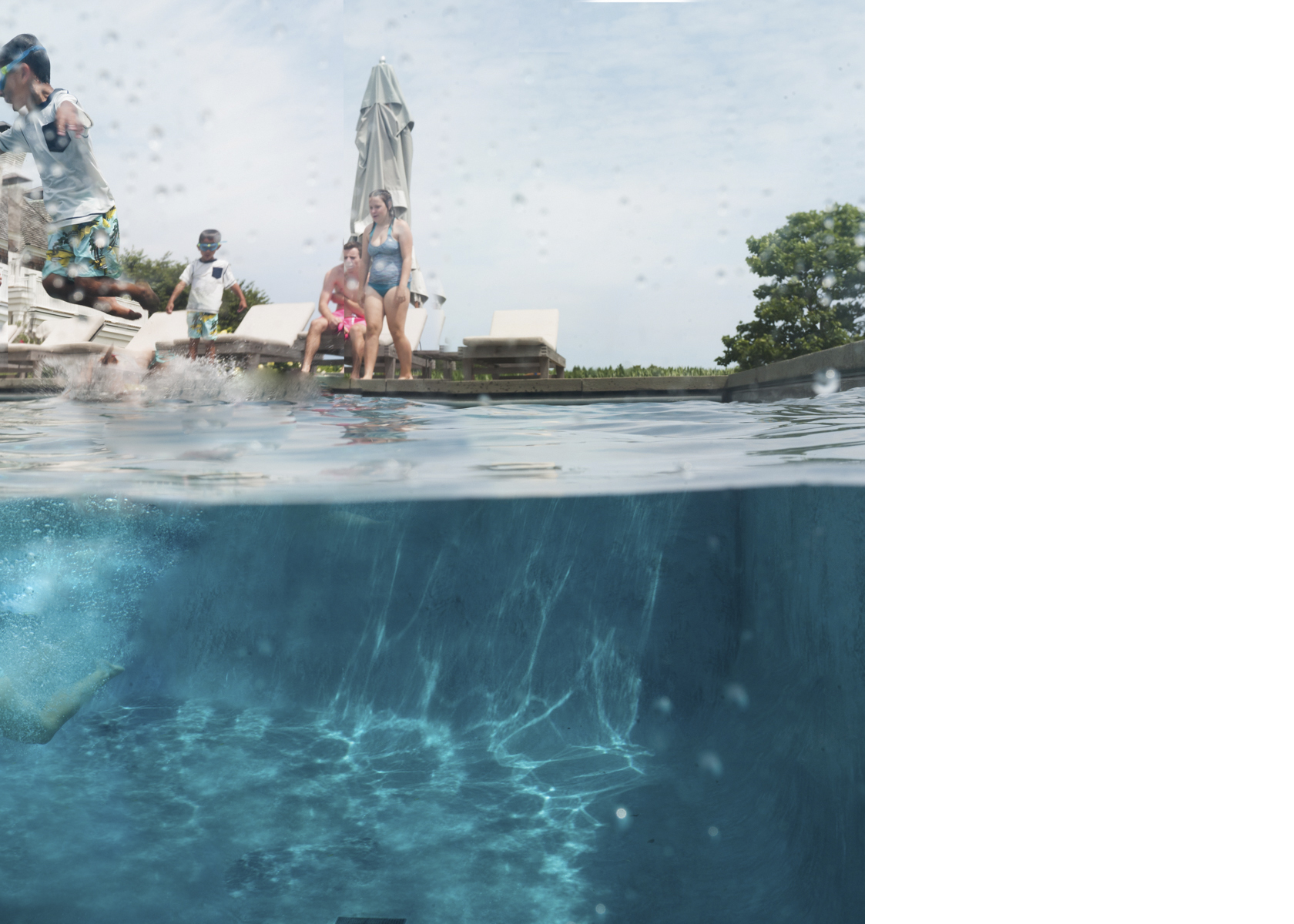







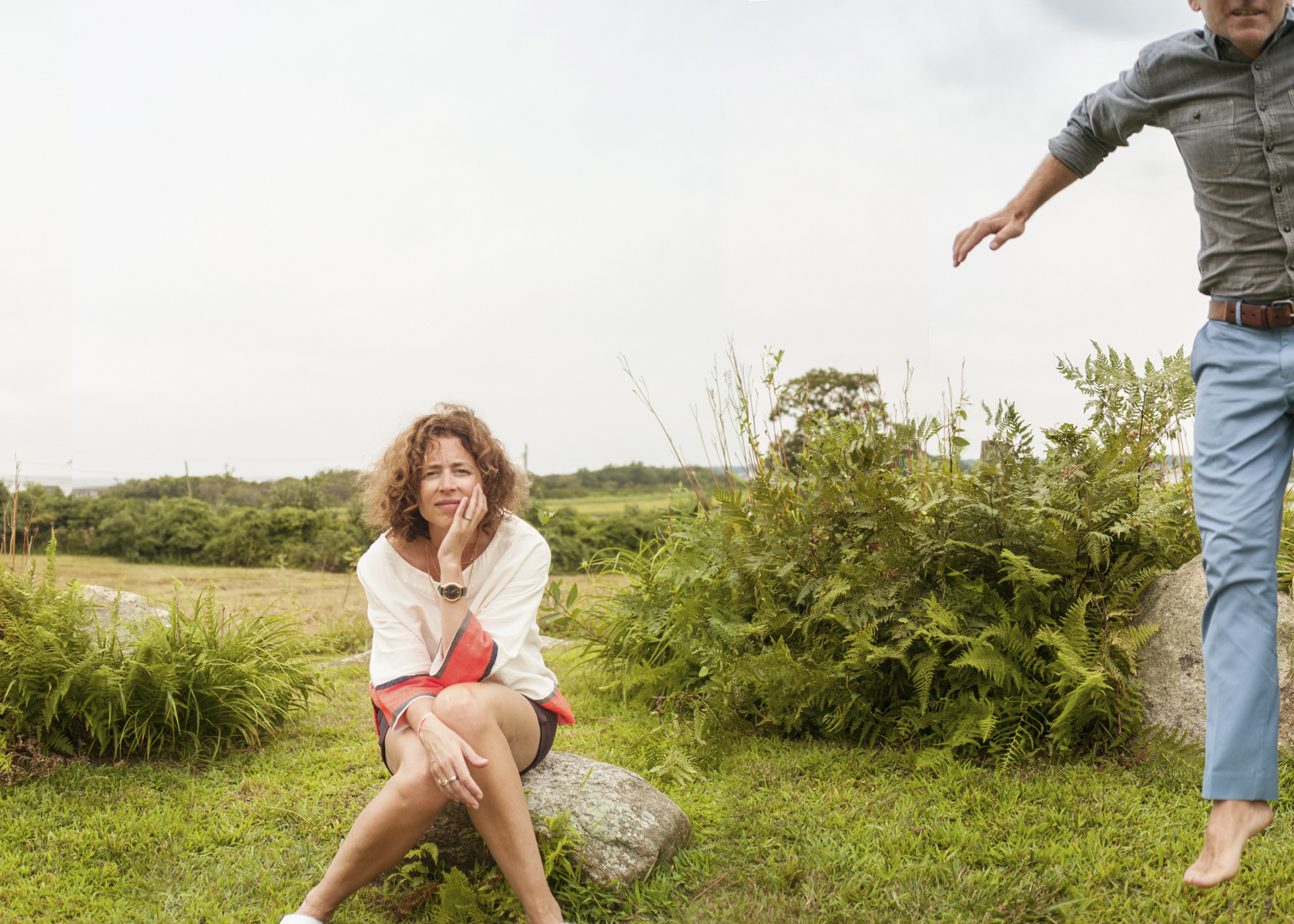
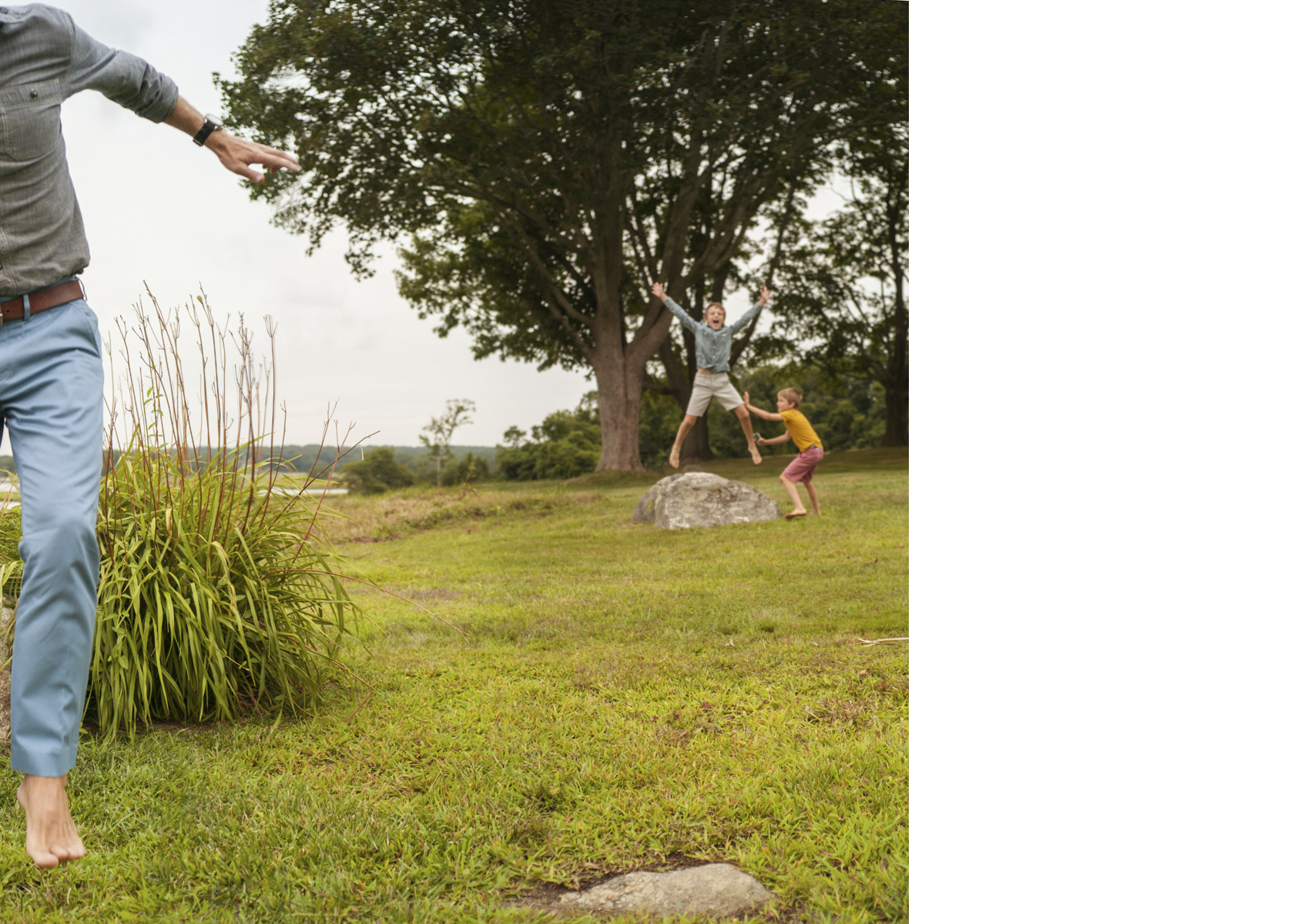

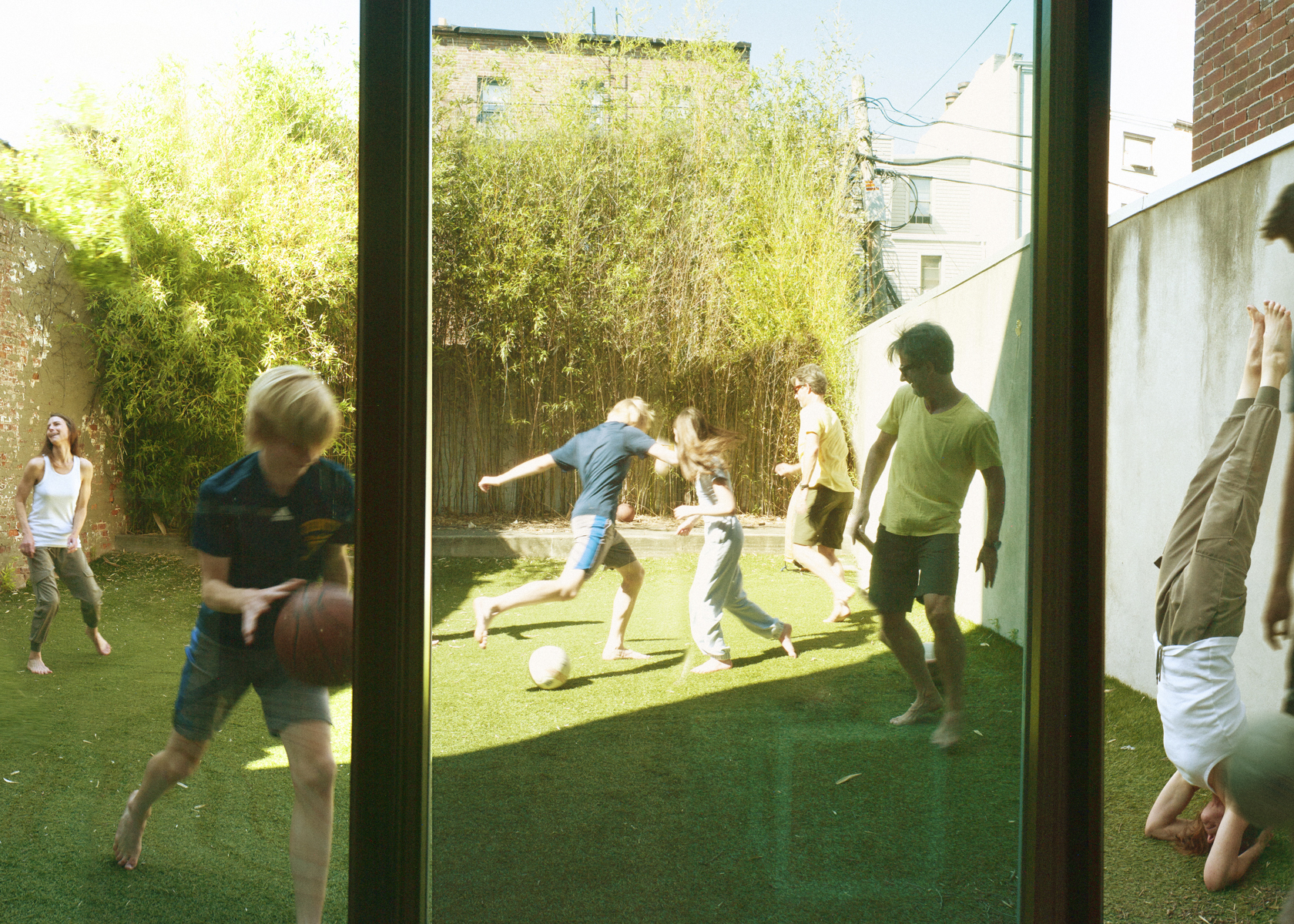
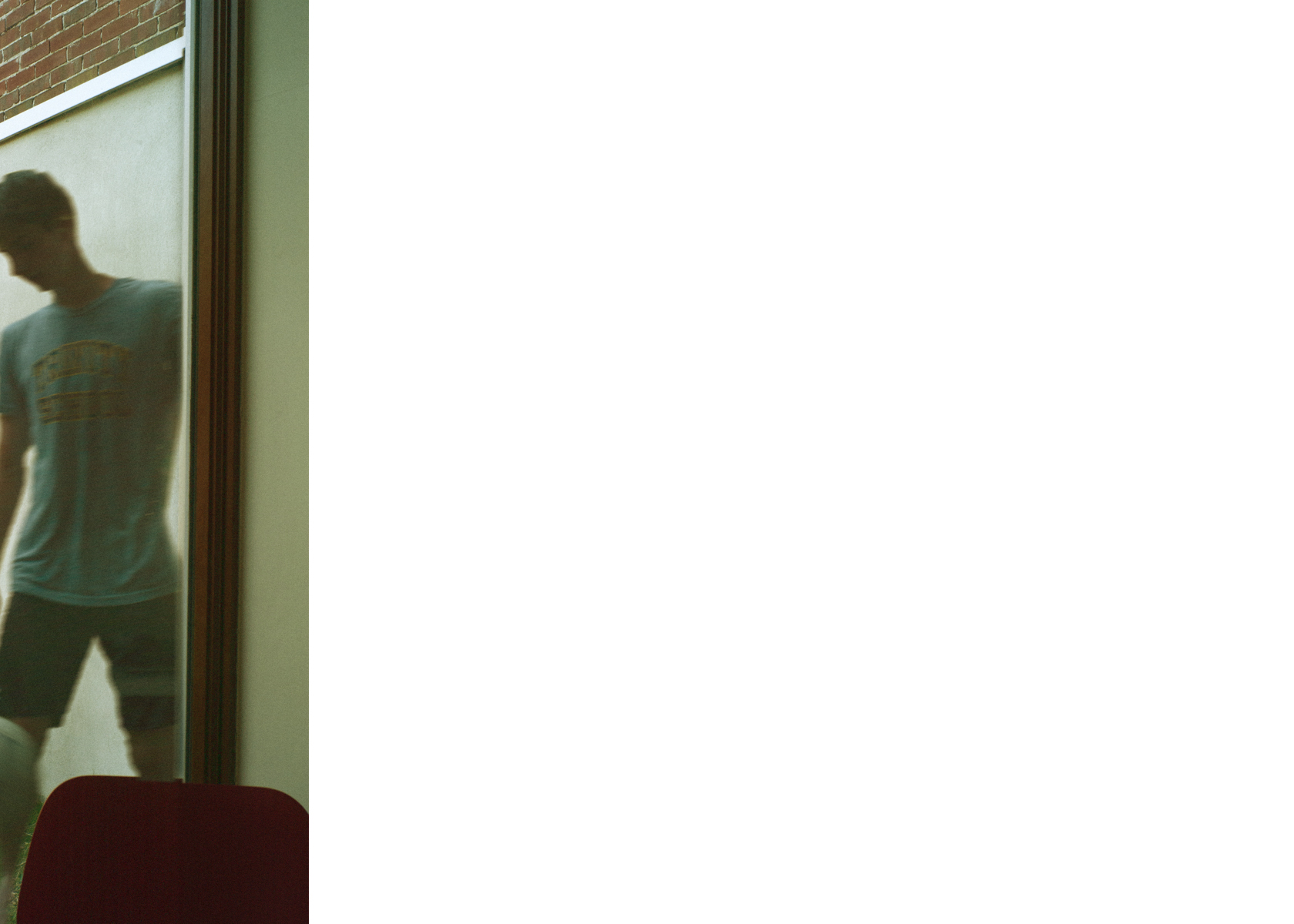

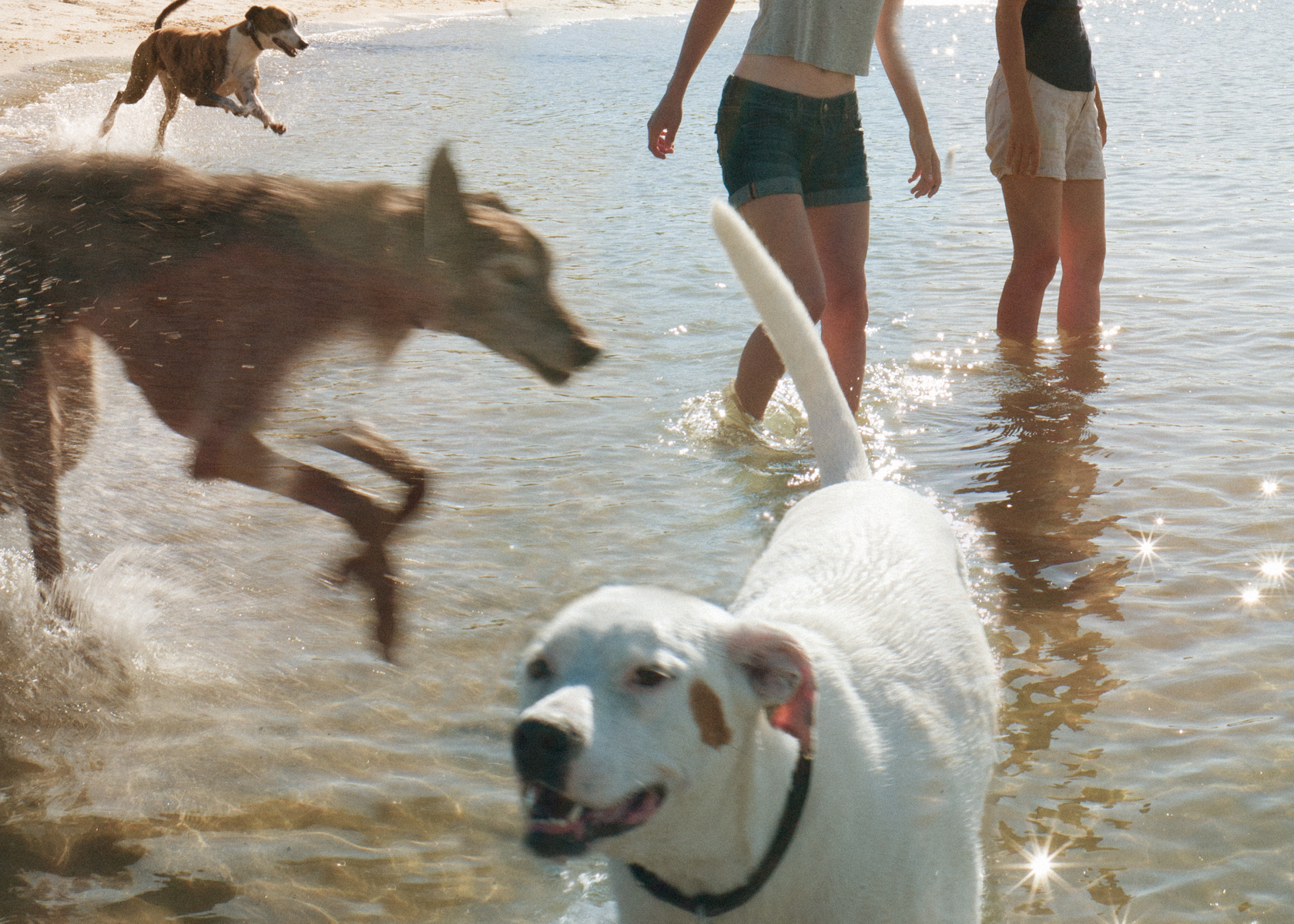

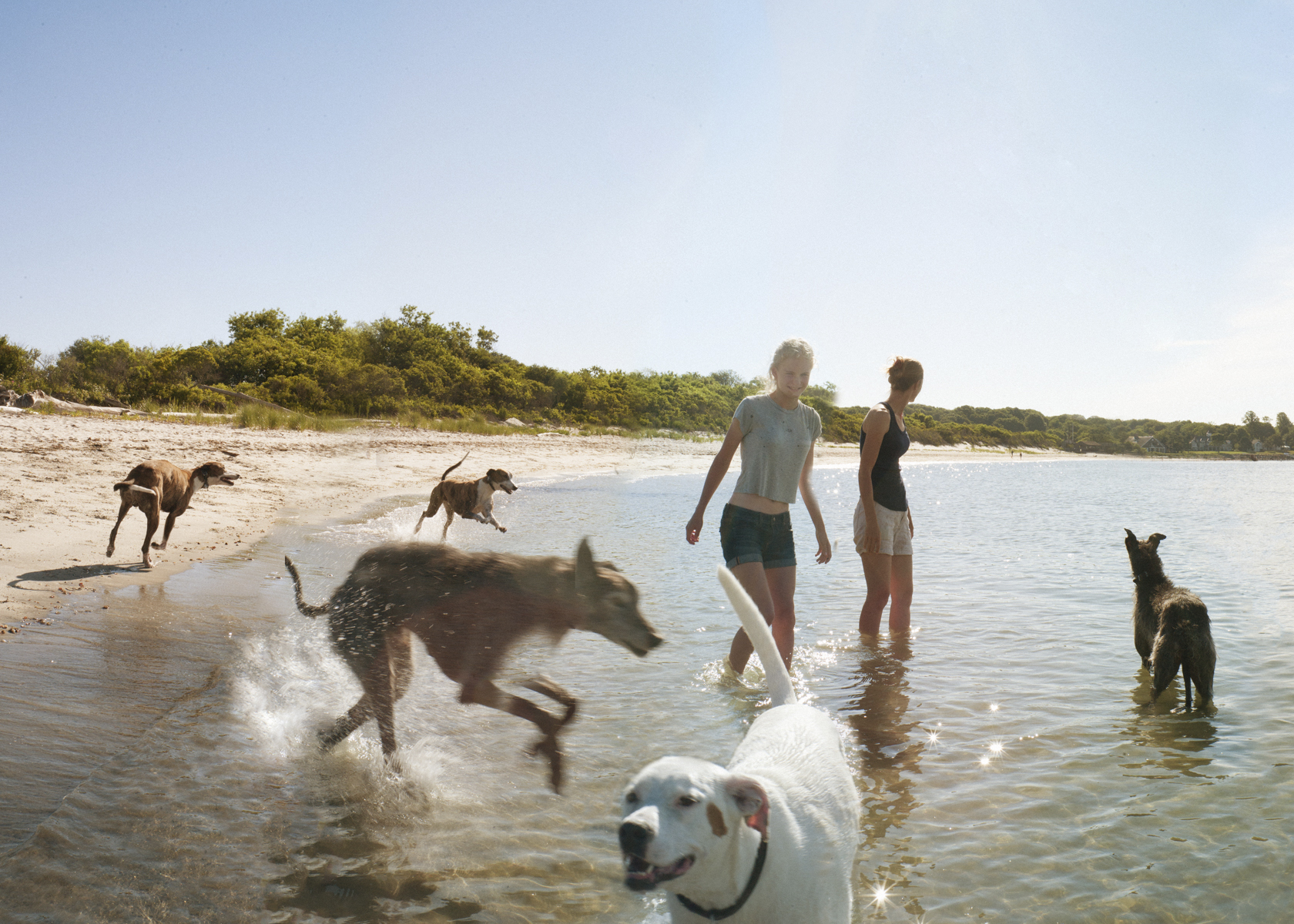
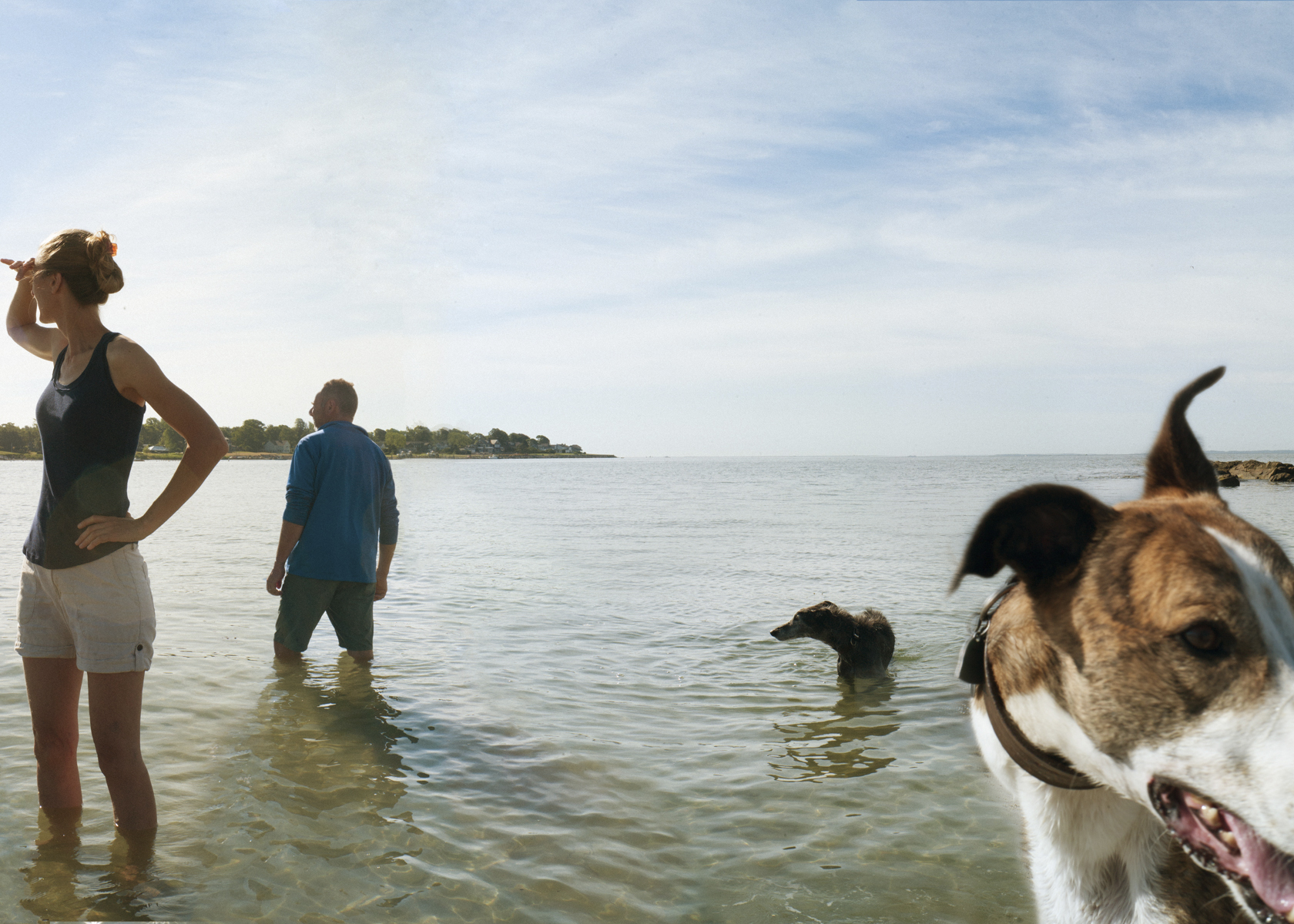

“ ... Thoss’s work deepens our sense of the mysteries of family life: the richness of it, the variety of it, and the ways time and space, kinship and love, converge and join people to one another.
The word panorama suggests breadth, balance, and wholeness. The roots of the word are Greek: pan - for all, horam for view or sight. The shape of the word is regular, the consonants and vowels alternating invariably. In the history of photography, a panorama is typically an unpopulated landscape or a stretch of city (Josef Sudek’s Prague panoramas).
Thoss’s panoramas are different. Characteristically, they show several people. They are unstable, often combining multiple images registered from one minute to a quarter of an hour apart. They thrive on movement, people jostling in close proximity to one another. They represent an extended moment – celebrate it ... ”
Full Essay
Paul Elie
The word panorama suggests breadth, balance, and wholeness. The roots of the word are Greek: pan - for all, horam for view or sight. The shape of the word is regular, the consonants and vowels alternating invariably. In the history of photography, a panorama is typically an unpopulated landscape or a stretch of city (Josef Sudek’s Prague panoramas).
Thoss’s panoramas are different. Characteristically, they show several people. They are unstable, often combining multiple images registered from one minute to a quarter of an hour apart. They thrive on movement, people jostling in close proximity to one another. They represent an extended moment – celebrate it ... ”
Full Essay
Paul Elie
PROGENY COMMISSIONS
When beginning a Progeny commission, I start with a simple question: What activity or place do you and your family want to remember most? From there, we talk about routines, shared rituals, and the spaces that hold meaning in your daily life.
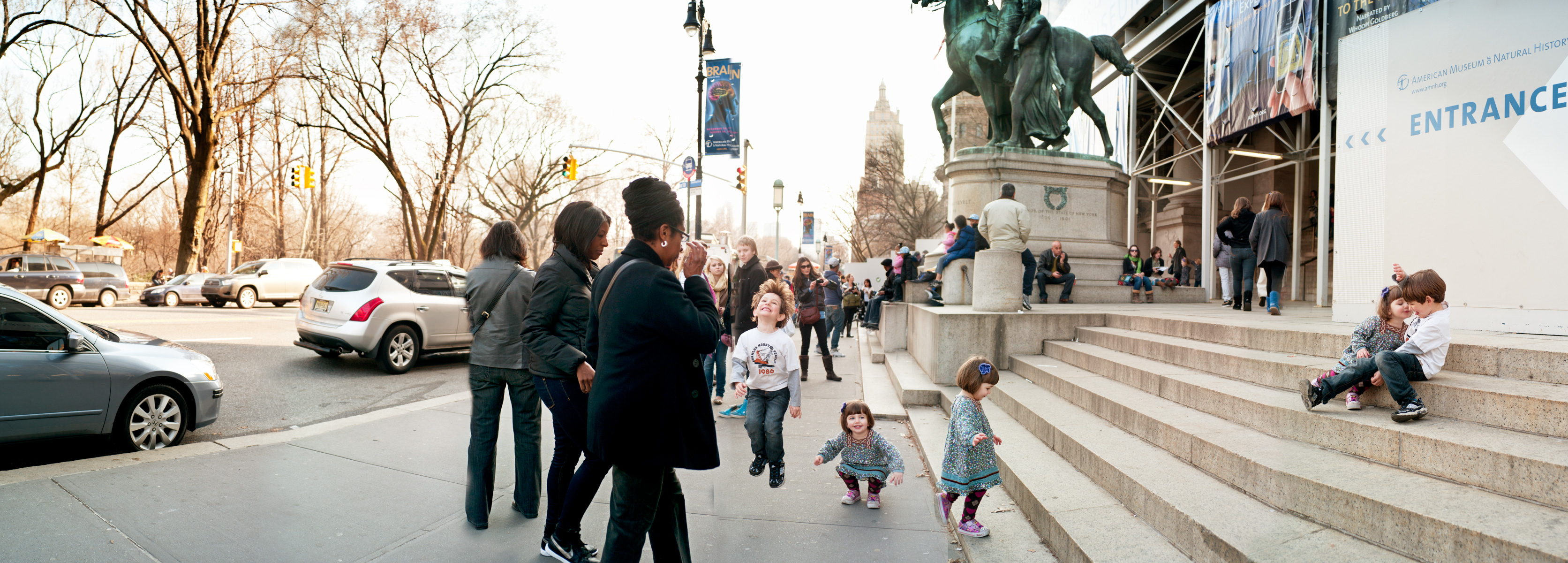

This allows trust to form and gives me insight into the dynamics, values, and quiet details that shape your family. Rather than simply staging moments, I listen closely and let your rhythms guide the work.
Depending on the scope of the project, I may spend anywhere from an afternoon to several days with your family.
After our session, we will work together to finalize the panorama for printing and framing. If possible, I love to deliver and hang the print myself.
These are the fundamentals of my approach. Let’s meet or talk on the phone so I can answer any questions you may have.
+1 (212) 627-8829
info@holgerthoss.com

PROGENY MANIFESTO
I. The Topography of Connection
Holger Thoss views a family as a landscape of shared spaces and quiet rituals. This is a study of the proximity of kin: the instinctive way a family inhabits a room, the way a child leans into a parent, and the weight of the places that hold meaning. Thoss does not simply photograph people; he documents the physical map of their lives.
II. The Merged Narrative
Life does not occur in a static frame. It happens in the periphery, in the movement between rooms, and in the multi-generational layers of a single afternoon. Through large-scale, merged panoramic studies, Thoss creates a cinematic record that mirrors how we actually remember: not as a single snapshot, but as an immersive landscape of feeling and presence.
III. The Discipline of the Witness
In an era of digital transience, Thoss operates as a disciplined witness. Guided by his "Look, Don't Think" philosophy, his work is an intuitive response to a family’s unique rhythm. He does not interrupt the flow of life; he listens to it, capturing the invisible threads that bind generations together.
IV. The Artifact as Cornerstone
A digital file is a ghost; a print is an inheritance. Each commission culminates in a singular, museum-quality artifact—a large-scale framed print designed to anchor a home. This is not decoration; it is a cornerstone of a family’s private archive, a visual document intended to be studied and cherished by those yet to be born.
V. The Preservation of Lineage
Thoss believes that the most ordinary routines are the most extraordinary treasures. By documenting the present with the reverence of a historian, he ensures that a family's essence is never lost to time. Progeny is the formal preservation of lineage, captured in the expansive stillness of the family landscape.
